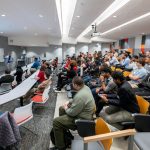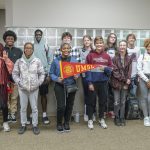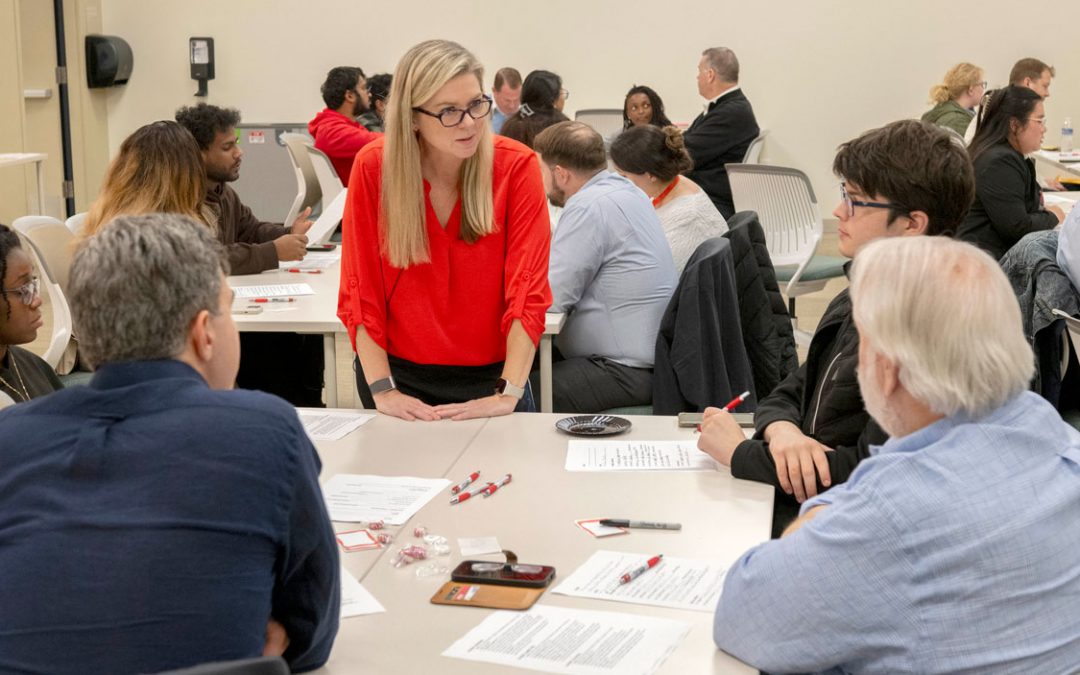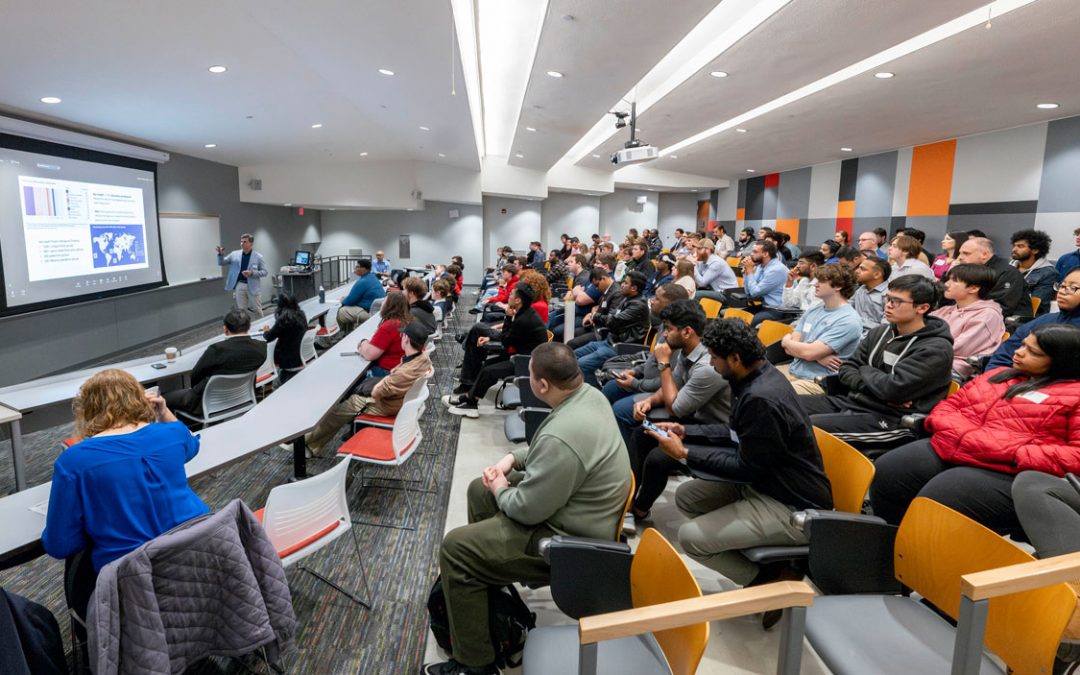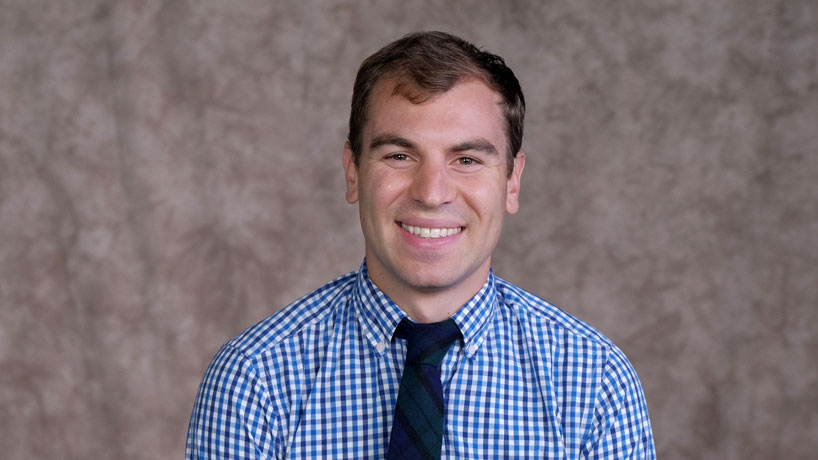
Math icebreakers, a collaborative classroom environment and more have earned Adjunct Instructor Ben Peet the 2016 Chancellor’s Award for Excellence to a Part-time Faculty Member. (Photo by August Jennewein)
It may be called Basic Calculus, but for some students, it’s not so basic. That is, until they take Adjunct Instructor Ben Peet’s class at the University of Missouri–St. Louis.
“He has helped me overcome obstacles and setbacks when I had no foresight and a fear that I was bad at math,” a former student says.
For his creative efforts to engage students with difficult subject matter, Peet has won the 2016 Chancellor’s Award for Excellence to a Part-time Faculty Member, which will be presented to him at the State of the University Address on Sept. 14. Along with the award comes a $500 honorarium.
Peet’s come to be known in the Department of Mathematics and Computer Science as an instructor that makes students comfortable and confident in their learning.
“For non-STEM major students, it always requires extra care and effort to engage and guide them through a good learning experience,” chair of the department Haiyan Cai writes in his nomination letter. “Consistently, Ben has done a very good job at achieving that.”
Since June 2012, Peet has taught 18 sections of Math 1100 Basic Calculus over 11 semesters and summer sessions, receiving extremely positive evaluations for the often-dreaded course by students. For a glimpse into how much they appreciate him, one simply need review Peet’s ratemyprofessor.com profile.
“He was one passionate teacher,” says Teana Simmons, a senior business administration major, “and it showed through his love of educating his students beyond a textbook and projector.”
Getting students out of a math funk can be difficult, but Peet attributes his success in doing so to a few creative teaching techniques. First and foremost, he teaches to individual needs.
“The diversity of the classroom not only applies to differences in cultural backgrounds, but also to the diversity of background education the students have,” Peet writes in his philosophy of teaching. “I believe the teacher needs to conduct the group, while also assessing each individual student within the classroom as a whole.”
Every day, Peet starts classes off with math icebreakers, which are tricky sets of questions that challenge logic in a fun way – so fun that students have emailed him months after the end of the semester asking him for additional creative thinking problems to work on and share with friends and family.
That may sound crazy – more math, please?! – but his students leave his class with genuine interest even if they aren’t math or science majors.
The ability to reach individuals is also achieved through Peet’s use of group work.
“When working collaboratively, students feel more comfortable and confident to ask questions they have first discussed with peers,” he says.
He also stresses open communication, ensuring that students know exactly where they stand in his class. Sometimes that comes through the immediate feedback of interactive learning software such as ALEKS and MyMathLab or evaluating group quizzes in class.
It should be noted that Peet’s teaching techniques and tricks weren’t formed overnight. He’s taught at two local high schools in St. Louis and prior to that in schools (either K-12 or universities) in the United Kingdom, Peru and Lebanon.
“I have taught in some highly challenging environments,” Peet says. “Innovation and creativity in the classroom have been the two motivating factors for me.”
More importantly, the students feel it’s working.
“He doesn’t treat students as a number but treats them as opportunities to invest in the future,” a former student says.
Peet is currently teaching math courses at Saint Louis University and UMSL. He’s a doctoral candidate in mathematics at SLU and finishing up his certificate in University Teaching Skills there as well.






